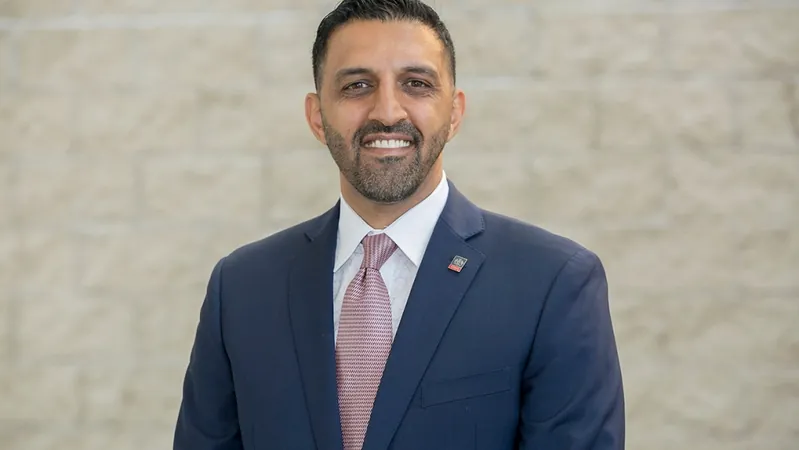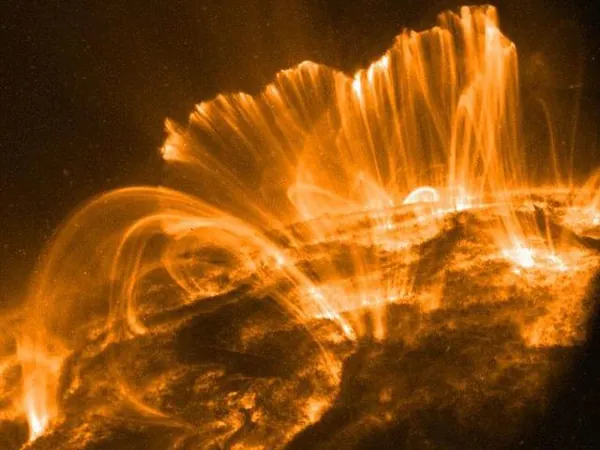
Calgary MP George Chahal Calls for Trudeau's Resignation: A Sign of Discontent within the Liberal Party?
2024-12-28
Author: Jacques
Introduction
Calgary Liberal MP George Chahal has stepped into the spotlight, calling for a significant change in leadership by urging Prime Minister Justin Trudeau to resign. In a bold move, Chahal publicly released letters directed to the Liberal caucus and the party president, signaling that discontent is brewing among party members.
Chahal's Call for Resignation
On Friday, Chahal took to the social media platform X to share his letters. In his correspondence with the caucus, he stated, “Prime Minister Justin Trudeau no longer has the support of caucus and to maintain some dignity, he should immediately tender his resignation.” He pointed out the recent resignation of Chrystia Freeland from her roles as finance minister and deputy prime minister, which he believes contributes to a growing sentiment of disapproval towards Trudeau's leadership.
Urgency for Change
Chahal emphasized the urgency of the situation, urging the party board to begin organizing a leadership race regardless of whether Trudeau officially steps down. As the fixed election date draws closer, he warned about the dangers of allowing other political parties to gain momentum against the government, stating, “It is clear now the leader of the Liberal Party no longer has the confidence of his parliamentary caucus and the vast majority of Canadians.”
Political Analysts' Perspectives
Political analysts see Chahal’s declarations as part of a larger trend among Liberals who are increasingly distancing themselves from the Prime Minister. Duane Bratt, a political scientist at Mount Royal University, remarked that Chahal’s actions mirror a broader chorus of Liberal members expressing their desire for change. He suggested that Freeland's resignation might have been a turning point, propelling many within the party to reconsider their support for Trudeau.
Implications of Internal Conflict
The implications of this internal conflict could be far-reaching. Gerald Butts, a close friend and former adviser to Trudeau, characterized Freeland's resignation as a “staggering blow” and noted that the Liberal Party's popularity has regressed to levels seen before Trudeau's leadership began in 2013.
Historical Context and Challenges Ahead
Lori Williams, another political analyst, reinforced the notion that Trudeau might be facing an increasing call for resignation, especially considering the historical pattern in Canadian politics where Prime Ministers who have served around a decade often face substantial challenges and a voters’ desire for change. She noted the rising concerns among Canadians regarding affordability, housing, and immigration, which have previously unseated many incumbents in North America and Europe.
Conclusion
As the Liberal Party grapples with these pressures and the implications of potential leadership changes, the question on everyone’s minds remains: Is this the beginning of the end for Trudeau's tenure as Prime Minister, or could there still be a chance for recovery and revitalization in the party’s ranks? The coming weeks could prove pivotal as tensions heighten and urgency mounts for a decision on leadership.









 Brasil (PT)
Brasil (PT)
 Canada (EN)
Canada (EN)
 Chile (ES)
Chile (ES)
 España (ES)
España (ES)
 France (FR)
France (FR)
 Hong Kong (EN)
Hong Kong (EN)
 Italia (IT)
Italia (IT)
 日本 (JA)
日本 (JA)
 Magyarország (HU)
Magyarország (HU)
 Norge (NO)
Norge (NO)
 Polska (PL)
Polska (PL)
 Schweiz (DE)
Schweiz (DE)
 Singapore (EN)
Singapore (EN)
 Sverige (SV)
Sverige (SV)
 Suomi (FI)
Suomi (FI)
 Türkiye (TR)
Türkiye (TR)